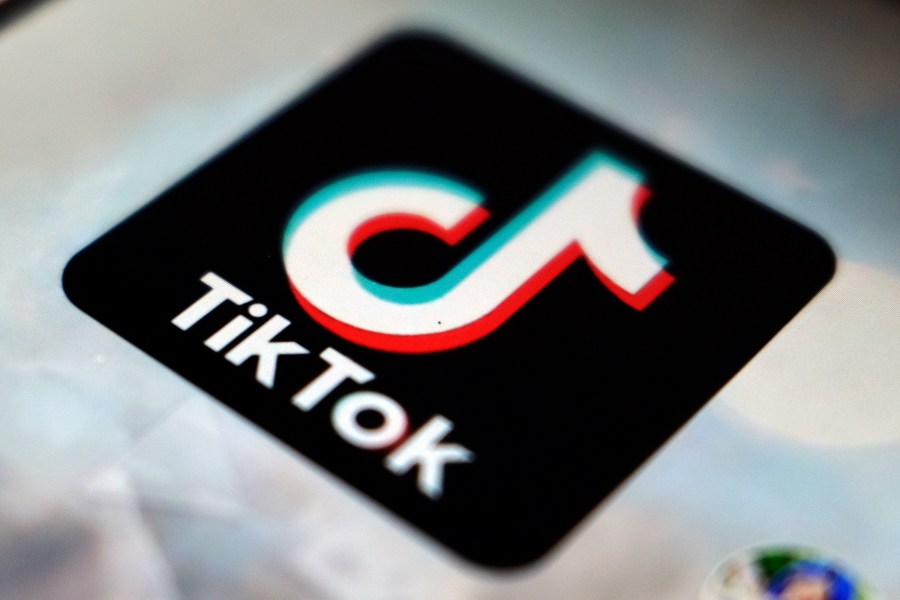(NewsNation) — The U.S. House approved a plan to ban the social media app TikTok, but there is still a long road ahead before it’s potentially implemented.
The proposal would ban the app in the U.S. unless it divests from its China-based owner as lawmakers express concern over national security threats. The Senate could put the ban up for a vote next week.
TikTok, which has more than 150 million American users and is highly popular with young Americans, is owned by Chinese technology firm ByteDance Ltd.
Legislators say leaving the platform in the hands of a Chinese company with close ties to China could leave massive U.S. consumer data vulnerable.
“Communist China is America’s largest geopolitical foe and is using technology to actively undermine America’s economy and security,” Speaker Mike Johnson, R-La., said in a statement after the vote, noting Wednesday’s vote thwarts “Communist China’s attempts to spy on and manipulate Americans.”
Under the bill, ByteDance would have about six months to divest from TikTok.
What actually happened in Congress?
An overwhelming majority approved the proposal, dubbed the “Protecting Americans from Foreign Adversary Controlled Applications Act,” in a 352-65 vote.
The bill, which was introduced last week, moved quickly for a Wednesday vote.
Under the bill, app stores or web hosting services in the U.S. would be blocked from having ByteDance-controlled applications, including TikTok, unless the app completely cuts ties with its China-based company.
The bill received support from both sides of the aisle, with lawmakers saying keeping Americans’ data out of China’s hands is essential.
“We have given TikTok a clear choice,” Rep. Cathy McMorris Rodgers, R-Wash., who voted in favor of the bill, said.
“Separate from your parent company ByteDance, which is beholden to the CCP (the Chinese Communist Party), and remain operational in the United States, or side with the CCP and face the consequences. The choice is TikTok’s.”

The House vote is just the first step, and the bill will now head for a Senate vote.
What are people saying about the bill?
The measure banning TikTok has elicited strong reactions from both supporters and opponents who are now one step closer to a potential ban.
Lawmakers have said their offices received large volumes of calls from teenage TikTok users who oppose the legislation. Several content creators have also spoken out about the potential harm of banning the app.
“It would really, really, really hurt a lot of people. And it’s disheartening to see that this is going through so quickly,” TikTok content creator Sidney Razkind told NewsNation prior to the House vote.
“To say that creators can easily pivot to a different platform is not true. If you have a large following on one, that doesn’t necessarily mean that you have a large following on the other.”
About 30 TikTok influencers traveled to Capitol Hill on Wednesday to speak out against the bill.
Civil liberties groups have also expressed concern regarding the potential overreach of the legislation.
In a March 7 letter to a number of House committees, the American Civil Liberties Union wrote that “banning or requiring divestiture of TikTok would also set an alarming global precedent for excessive government control over social media platforms.”
TikTok has also vehemently fought against the bill, assuring lawmakers it would never compromise any data to the Chinese government.
In a statement following the vote, a spokesperson for TikTok said, “We are hopeful that the Senate will consider the facts, listen to their constituents, and realize the impact on the economy, 7 million small businesses, and the 170 million Americans who use our service.”
Republican presidential front-runner and former President Donald Trump broke with this party, saying he couldn’t support Congress’ banning TikTok because doing so would boost support for Facebook, which he called the “enemy of the people.”
However, much support for the legislation remains, as President Joe Biden said he would sign it if it passes the Senate.
What happens next?
The bill will now go to the Senate, where lawmakers have indicated it would undergo a thorough review.
Senate Majority Leader Chuck Schumer, D-N.Y., has not indicated how he may vote, instead saying he’ll have to consult with relevant committee chairs on the bill.
In a joint statement, Sen. Marco Rubio, R-Fla., and Sen. Mark Warner, D-Va., said that “we are united in our concern about the national security threat posed by TikTok — a platform with enormous power to influence and divide Americans whose parent company ByteDance remains legally required to do the bidding of the Chinese Communist Party.”
Sen. John Kennedy, R-La., told NewsNation he is very concerned about security implications surrounding TikTok.
“There are very real First Amendment rights here,” he said. “170 million Americans use TikTok, and they have First Amendment rights here. TikTok, when it’s operating in the United States, has First Amendment rights. I don’t take that lightly, but national security may surpass those First Amendment rights, but we’ve got to have the facts first.”
Despite some Senators expressing support, it is still largely unclear how the bill will fare in the chamber.
If it passes, the bill will be presented to President Biden, who can either veto it or sign it into law.
